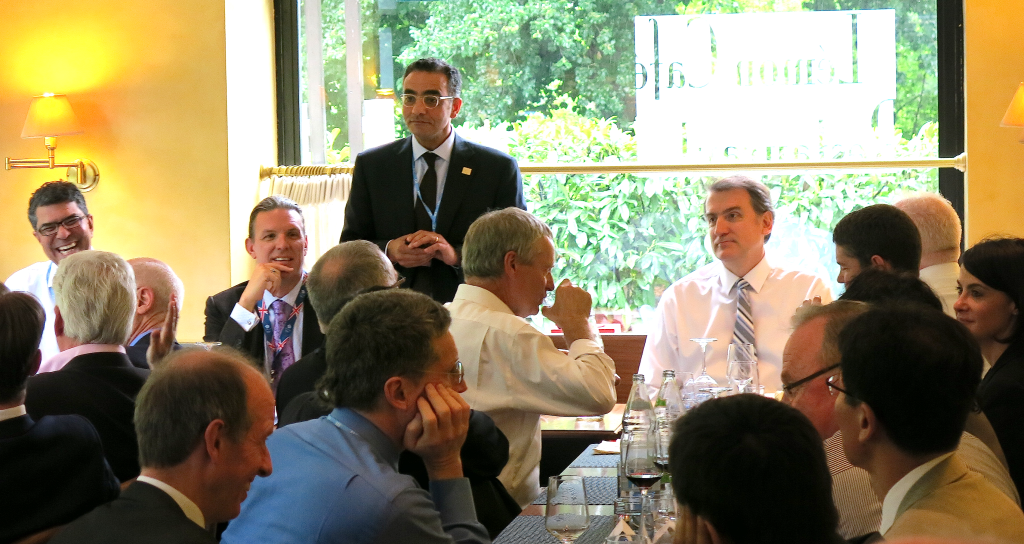Geneva – On May 15th, more than 40 leaders from the technology sector, international organisations and representatives of 15 of the countries participating in the Trade In Services (TISA) negotiations lunched together, co-hosted by CCIA, IDEA, and ICANN (represented by CEO Fadi Chehade and Board Chairman and Internet pioneer Steve Crocker amongst others). The purpose: to share perspectives on how trade agreements like TISA can both promote the networked economy and support the private-sector-led, bottom-up and multi stakeholder-based decision-making ecosystem that has proven so successful.
Attending were the Ambassadors of the TISA co-chairs (Australia and United States), the European Union and Sweden and a “who’s who”of the global ICT sector, including Indian trade body FICCI, APNIC (Asia-Pacific regional Internet Registry), AT&T, British Telecom, Cisco, PayPal, Google, Red Hat, and Verizon. The event was part of our ongoing efforts to bring together leaders from the private sector and government negotiators to foster a common understanding of the networked economy in a trade context, given that trade policy is a ‘new world’ for many from the Internet services sector just as provisions for the networked economy are new for many trade negotiators.
Highlights of the discussion:
- The TISA co-chairs both expressed how valuable these opportunities for TISA countries to meet with Internet sector representatives is.
- Several speakers highlighted the importance of the Internet as the ‘trade highway of the 21st century’ – and that good trade rules can help protect its open and decentralised nature.
- The value of the free flow of information – and that issues like data privacy and security would need to be tackled to ensure the principle has real value – was discussed in various guises.
- ICANN’s Chehade noted that ICANN has globalised its operations, splitting the Los Angeles HQ into three, opening offices in Istanbul and Singapore, in line with the global nature of the Internet.
- Participants also stressed the need to allow the broader public to engage with TISA, to prevent misunderstanding of the agreement’s objectives and the beneficial effects it can foster.
- Various participants explained how essential systems like the DNS and Internet Protocol address management are to the Internet in all its forms, including trade, as well as the value of preventing local hosting requirements.
- Some observed that the structures of the multilateral trading system were created long before the ‘trade in ideas’ emerged; bringing this into the system will require innovative approaches.
The engaging discussion and the very positive feedback received from the participants confirmed our belief in the value of this process. The next opportunity to connect Trade negotiators with technology leaders will be during the last week of June when we plan to host a series of educational sessions on the Internet ecosystem for the Geneva Diplomatic Corps.
